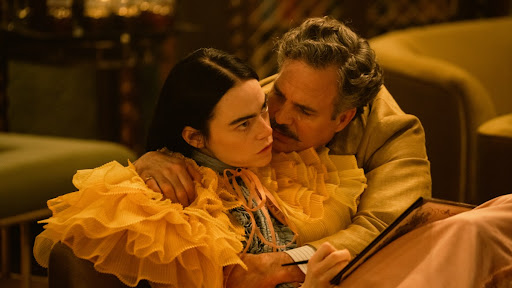Source: IndieWire
Earlier this year, the Academy Award for Best Picture was given to Daniel Kwan and Daniel Scheinert’s “Everything Everywhere All at Once”, a film that many would describe as a major break from the norm when it came to most recent Best Picture recipients. For one thing, the film had come out much earlier in the year than most major awards contenders (which studios tend to release in the fall season, close enough to when most voters begin casting their ballots), allowing to maintain a steady momentum throughout the next several months and remain in the public consciousness long enough for it to not only make its way into the awards circuit, but more or less completely dominate the period throughout its entirety. Second, with the exception of “Parasite” just a few years prior, it’s the only Best Picture winner to feature a cast of actors who are primarily of Asian descent, some of whom even managed to further strengthen the film’s success at the Academy Awards with some additional acting prizes (specifically Michelle Yeoh’s Best Actress prize and Ke Huy Quan’s win for Best Supporting Actor). Above all else though, “Everything Everywhere All at Once” was, for a lack of a better word, weird. Relishing in its status as an absurdist science fiction comedy-drama that revolved around the concept of the multiverse and threw in just about every odd visual one could imagine, the film could very well be one of the most unique cinematic experiences in recent memory, and not necessarily in ways that one would consider awards worthy. In spite of everything however, such weirdness surprisingly did little to repel those who voted in any of the season’s many major awards ceremonies; in fact, if the seven Oscars it won are any indication, the weirdness of “Everything Everywhere All at Once” may’ve been exactly what attracted people to its side in the first place.
Considering the Academy’s (and that of most awards organizations in general) penchant for favoring uplifting feel-good stories, serious dramas that deal directly with relevant social issues, and other cinematic works that one might describe as “down-to-earth”, one might assume that the triumph of “Everything Everywhere All at Once” is a one-time situation. However, a recent breakout at this year’s Venice Film Festival suggests that there may still be a demand for films that are more creatively bizarre than what has usually been released during this particular time of the year. That film is “Poor Things”, directed by Yorgos Lanthimos, distributed by Searchlight Pictures, and starring such actors as Emma Stone, Mark Ruffalo and Willem Defoe. Based on the 1992 novel of the same name by Alisdair Gray, the film, described by many as a modern re-imagining of the “Frankenstein” story, takes place in a time and place reminiscent of the Victorian period and revolves around Bella, a young woman who is resurrected shortly after her suicide by her mad scientist guardian. With her brain unable to function properly as a result of the previous events, Bella develops an innocently naive outlook on a world she is no longer familiar with and, by running away with a shady, but charismatic lawyer, Bella makes it her mission to see the world and achieve full autonomy over her body and life.
If that synopsis sounds unusually surreal, then those who have been fortunate enough to see the film, which premiered at the Venice Film Festival shortly after the event’s beginning, will likely reaffirm such an assumption and claim that “Poor Things” is even odder than anyone might’ve initially guessed. However, they would also say that the film is just as exceptionally created as it is intriguingly surreal, with one article from IndieWire describing the film as “an irresistibly funny, gorgeously crafted, and very graphic sexcapade” and echoing many of the same praises that critics and festival attendees gave the film shortly after its premiere. Granted, one could argue that some of this was to be expected from director Yorgos Lanthimos, who had previously helmed such surreal black comedies as “The Lobster” and “The Favourite” (the latter of which earned leading actress Olivia Coleman an Academy Award for Best Actress), but if the early reviews are any indication, “Poor Things” might be Lanthimos’ most ambitious and certainly strangest film yet – and that’s precisely what has allowed it to captivate Venice festival-goers.
As the Venice Film Festival reached its conclusion on September 9th, there was much talk about whether or not “Poor Things” would receive any of the event’s major awards. After all, prominent filmmakers like Martin McDonagh and Jane Campion, who served as part of the jury for this year’s event, were said to have spoken fondly about Lanthimos’ cinematic creation, and there already seems to be much buzz around Emma Stone and her potential to win a second Best Actress Oscar for her work in the film. As it turns out, the jury at the Venice Film Festival did not simply award “Poor Things”, but it gave the film its highest honor possible: the Golden Lion. Given the competition, this alone is already an incredibly impressive achievement, but what makes “Poor Things” and its Golden Lion win especially noteworthy is how it places it alongside other past Golden Lion winners like “The Shape of Water”, “Roma”, “Joker”, and “Nomadland” – all of which were eventually nominated at their respective Academy Awards ceremonies (and two of which ended up winning this highly coveted prize). If the success of “Poor Things” at this year’s Venice Film Festival has not cemented its chances of winning Best Picture at the upcoming Oscars ceremony, then at the very least it’s safe to assume that a nomination is all but guaranteed.
Of course, if “Poor Things” does intend to pursue a Best Picture win, it will have to continuously face some stiff competition over these next few months. Films like Michael Mann’s “Ferrari”, Nikolaj Arcel’s “The Promised Land”, Sofia Coppola’s “Priscilla”, and Ryusuke Hamaguchi’s “Evil Does Not Exist” (the latter of which won the runner-up Silver Lion Grand Jury Prize) have also been the recipient of great praise over the duration of the Venice Film Festival, and the same can be said about many other films that will also vie for awards recognition throughout the next several weeks. Still, the weirdness of “Poor Things”, if nothing else, will certainly be enough to draw the attention of many, and hopefully, that attention will continue to grow as the festival and awards circuits continue to move forward.




